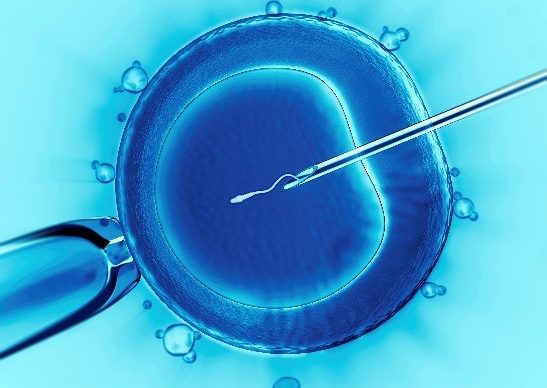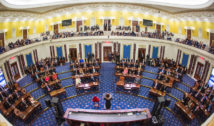
“Incurring the Wrath of a Holy God?” – Alabama Frozen Embryo Ruling DOES Incur the Wrath of Religious Groups
- By Deirdre Pelphrey --
- 06 Mar 2024 --
Human life cannot be wrongfully destroyed without incurring the wrath of a holy God—Alabama Supreme Court Chief Justice Tom Parker (concurring that frozen embryos are children)
On February 16, the Alabama Supreme Court ruled that frozen embryos can be considered children under state law, thus putting the future of the IVF method, along with the hopes of parents wanting families, in doubt.
In concurring with the decision, Alabama Supreme Court Chief Justice Tom Parker invoked what he believed to be Christian theology. But as outrage, concern and debate mounts, even amongst authoritarian Christians, he may find himself in the minority, and a small one at that.
IVF—In-Vitro-Fertilization, a complex series of medical procedures in which an egg is fertilized by sperm in a test tube or elsewhere outside the body—is an infertility treatment. It has a success rate of almost 50% in cases where the woman is younger than 35.
Given that the Bible—Old and New Testaments—were written over many centuries ending around the second century C.E., and given, too, that the first successful IVF baby wasn’t born until 1978, nearly two millennia later, it is unlikely that one will find any specific mention of IVF in Scripture. Consequently, the subject has elicited opinions on both sides and the middle.
The Episcopal Church has endorsed the practice since 1982, as did the United Church of Christ seven years later. The Evangelical Lutheran Church in America has no official position. Nor do the Southern Baptists (but some have called for an official resolution on the matter at its convention later this year). And the Catholic Church hierarchy opposes it.
Those are the official positions. Individual positions vary. Pew Research found that 55 percent of white Catholics answered yes to the question, “Have you used fertility treatments to have children or know anyone who has?” White mainline Protestants were a close second at 48 percent, and white evangelicals third at 44%.
But when considering that non-white respondents fell into much lower percentages (Hispanic Catholics at 29 percent and Black Protestants at 26 percent), it becomes evident that—at IVF’s price range of $15,000 to $20,000—the driver of the survey figures is not faith but finances.
But IVF is one thing. Frozen embryos are another. Religion News Service reports that “Even among religious groups that seek to ban abortion, many do not agree that the destruction of frozen embryos is the same as taking a life.”
The United Methodist Church has wrestled with the subject, taking the position that, while “reluctant to approve abortion,” and declaring that people “should not create embryos with the sole intention of destroying them,” still, “obtaining and fertilizing multiple ova may be justified” [i.e., IVF] even if some embryos perish, the reason being that the practice helps “avoid the necessity of multiple attempts to obtain ova.”
Not surprisingly, the outrage exploding from the Alabama decision comes from religious advocates of abortion rights. It’s a disputed theological claim, they say, about when life begins. On that point, according to Pew Research, most Christians (54 percent), Buddhists (78 percent), Hindus (69 percent) and Muslims (66 percent) agree—abortion should be legal in all or most cases. Some rabbis and Jewish organizations have filed lawsuits against abortion bans, claiming that those bans violate Jewish tradition and, therefore, are religious freedom abuses.
With the percentages in favor of abortion, it takes no logical stretch to conclude how these groups feel about lost frozen embryos.
To the Rev. Katey Zeh, who heads the Religious Coalition for Reproductive Choice, what is involved is the sin of pride. “There’s a huge spectrum of theological opinion about when life begins or when personhood begins,” she says. “There’s no consensus here, so there’s a lot of hubris in claiming — especially in the legal standing — that this is the theological viewpoint of an entire religious tradition. That’s certainly not true.”
To Zeh, moreover, a moral line has been crossed by the Alabama ruling, which almost at once stopped all IVF procedures in the state and thus denied a lifeline to parenthood to potential Moms and Dads.
It just feels so similar to rulings about abortion — the lack of regard to the people whose lives are actually impacted,” she said. “As a person of faith, that’s what feels so immoral to me.”



















